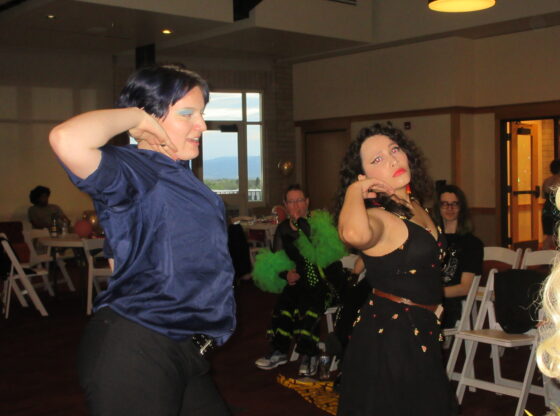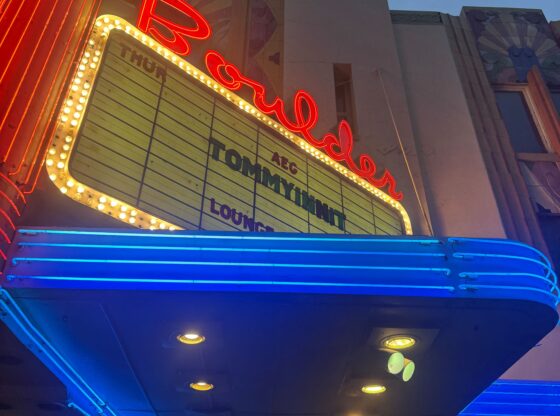“Wrong Turn” (2021) had a solid chance at critical and commercial success. The five sequels to follow the original, “Wrong Turn” (2003), are not a tough act to follow. None of them ever saw a theatrical release, likely due to the absence of plot and overabundance of gore and transgressive content.
The rural horror flick was poised for success. Unfortunately, “Wrong Turn” failed to fulfill the spirit of its first predecessor or create something entirely new, choosing instead to fall between the two in tepid mediocrity. “Wrong Turn” centers on Jen (Charlotte Vega) as our scrappy protagonist, alongside her foil and boyfriend Darius (Adain Bradley). The film’s villain, Venable (Bill Sage) and Jen’s father, Scott (Matthew Modine) round out the principal cast with Mike P. Nelson directing.
The film opens with Scott looking for his daughter, who went missing on a hiking trip in Appalachia with her friends several weeks prior. He receives only vaguely ominous responses from locals and is left to his own devices for tracking down Jen.
The film then cuts to six weeks earlier, detailing the initial confrontation between the naive twenty-somethings and the jaded townsfolk. As the story unfolds, the audience learns of the group’s peril in the woods and that the town may be far more secretive than its citizens let on. As danger mounts, Jen struggles to save herself and her friends from hostile forces in the woods while her father sorts through the aftermath in flashbacks and forwards.
Charlotte Vega is an apt horror final girl. She transitions smoothly from naive art major to gritty, determined woodland survivalist. She and Darius are the two best parts of the film. The latter excellently foils Vega’s against-all-odds spirit. This hopeful demeanor gradually slips into ambivalence before becoming apathetic during the film’s climax.
The camera angles are pragmatic with occasional close-ups on gruesome traps steps away from our protagonists to develop tension and suspense. The film otherwise sets a realistic tone through lighting and sound that aptly reflects an ordinary forest. No excessive shadow or ominous score oversell the woodland setting. However, this choice is hyper-realistic to a fault. Very little suspense is established early on with the exception of the occasional snares that grow predictable as the film progresses.
Any viewer with a few horror films under their belt is sure to guess at the fate that will befall unseasoned city slickers that ignore the warnings of the townsfolk. This trope is so aggressively overplayed that there is little to no tension. The mundane setting and cinematography do little to improve on this basic premise.
Thematically, “Wrong Turn” (2021) aims a step above its depraved predecessors without quite getting there. The film forgoes the superhuman-inbred-cannibal versus college students trope in favor of a plot with more substance. Gone is the gratuitous violence and tasteless incestuous overtones—instead, they are replaced by a clash of political ideologies.
“Wrong Turn” (2021) is a reboot in name only. The lack of creeping suspense and rural horror that distinguished “The Texas Chainsaw Massacre” (1974) and “The Hills Have Eyes” (1977) is forgotten and replaced with vague political allusions that neither make a clear point nor add anything substantial to the conversation.
Fans of the franchise will be disappointed with the departure from the gore and cannibalism that defines the genre. That being said, newcomers to horror may enjoy the more profound elements of the film as well as its bold, if not completely successful, attempt at a statement around freedom and the idea of self. “Wrong Turn”(2021) approaches the idea of autonomous governance and the social prejudice in the U.S. without making a substantial argument on the subject.
The movie is almost worth a watch for the practical effects alone. The gore in the film is nauseatingly realistic, and while I would hesitate to call the film scary or suspenseful, there are several disturbing sequences.
“Wrong Turn” (2021) strives to be more than direct-to-video torture porn. In a sense, it succeeds by forgoing classic components of wilderness horror. While the film’s shift to profound conversations about society is admirable in its audacity, the film doesn’t go far enough. A severe lack of tension and cliched subplots keep “Wrong Turn” in the dark. The film can’t be called a success, but with this latest installment, the franchise might be moving in the right direction.











